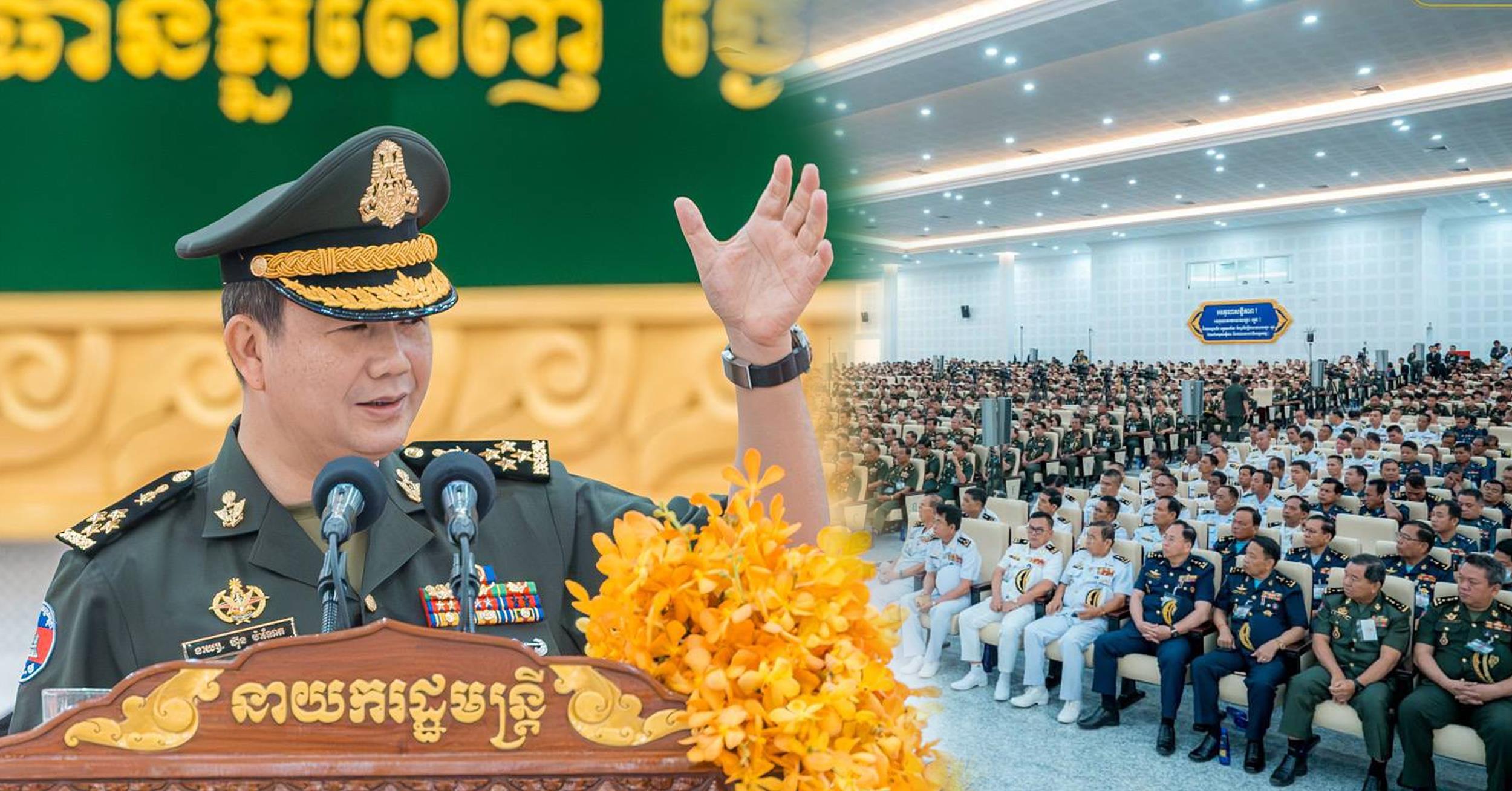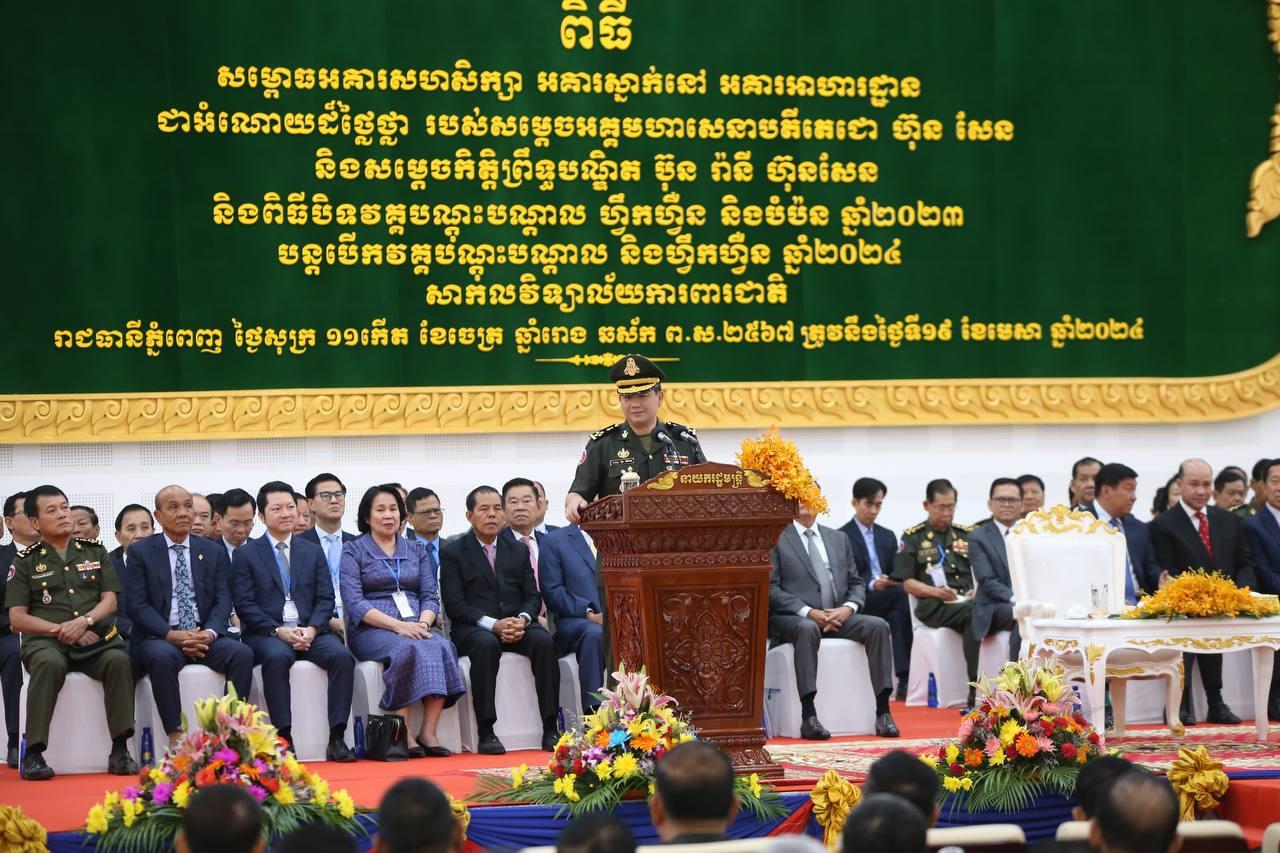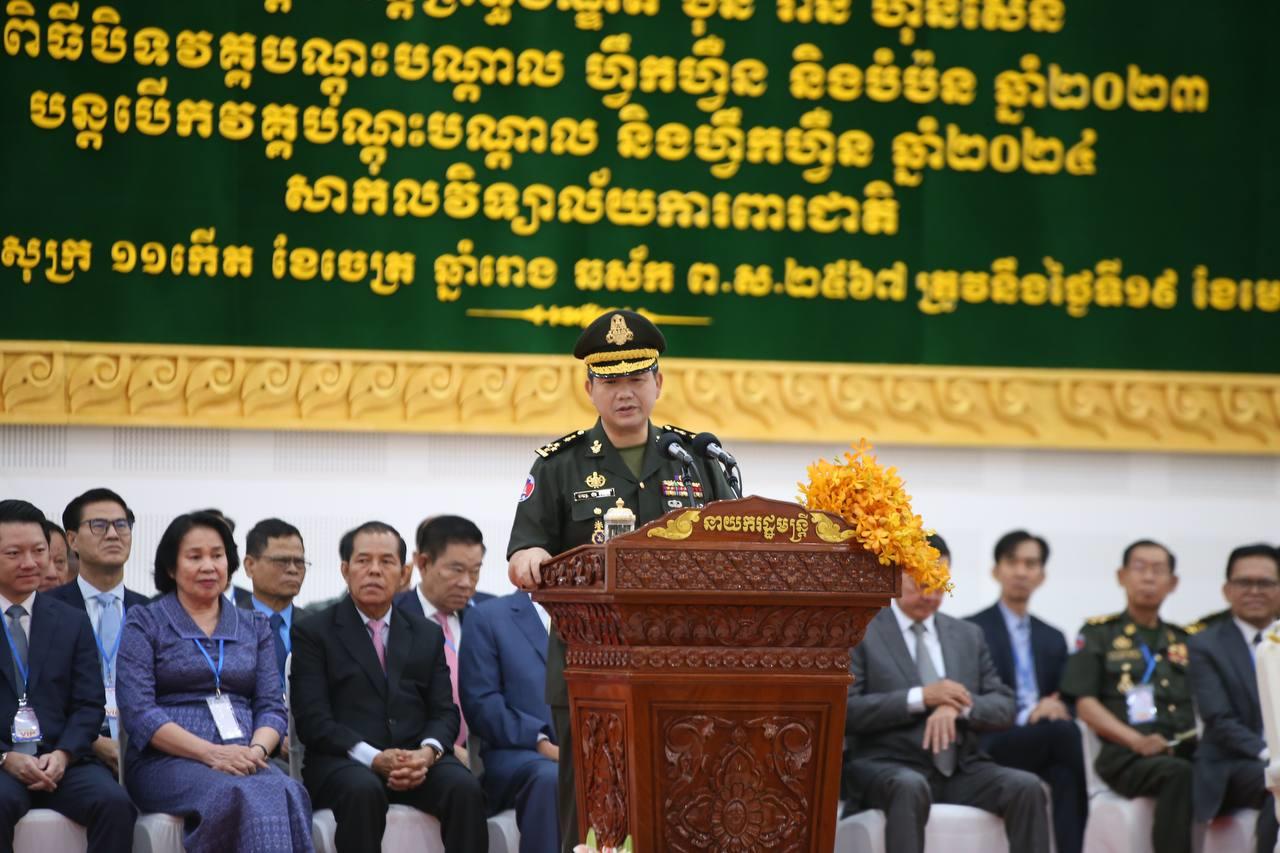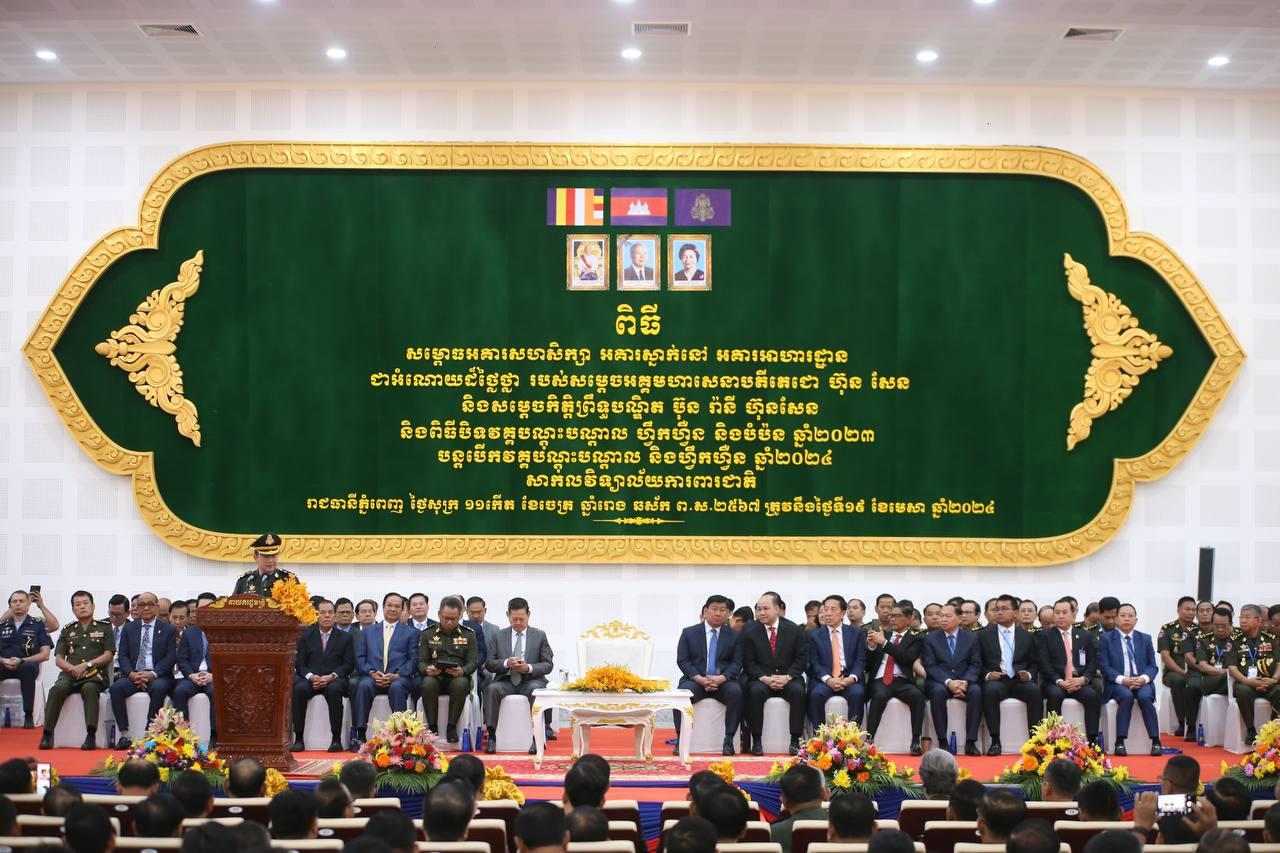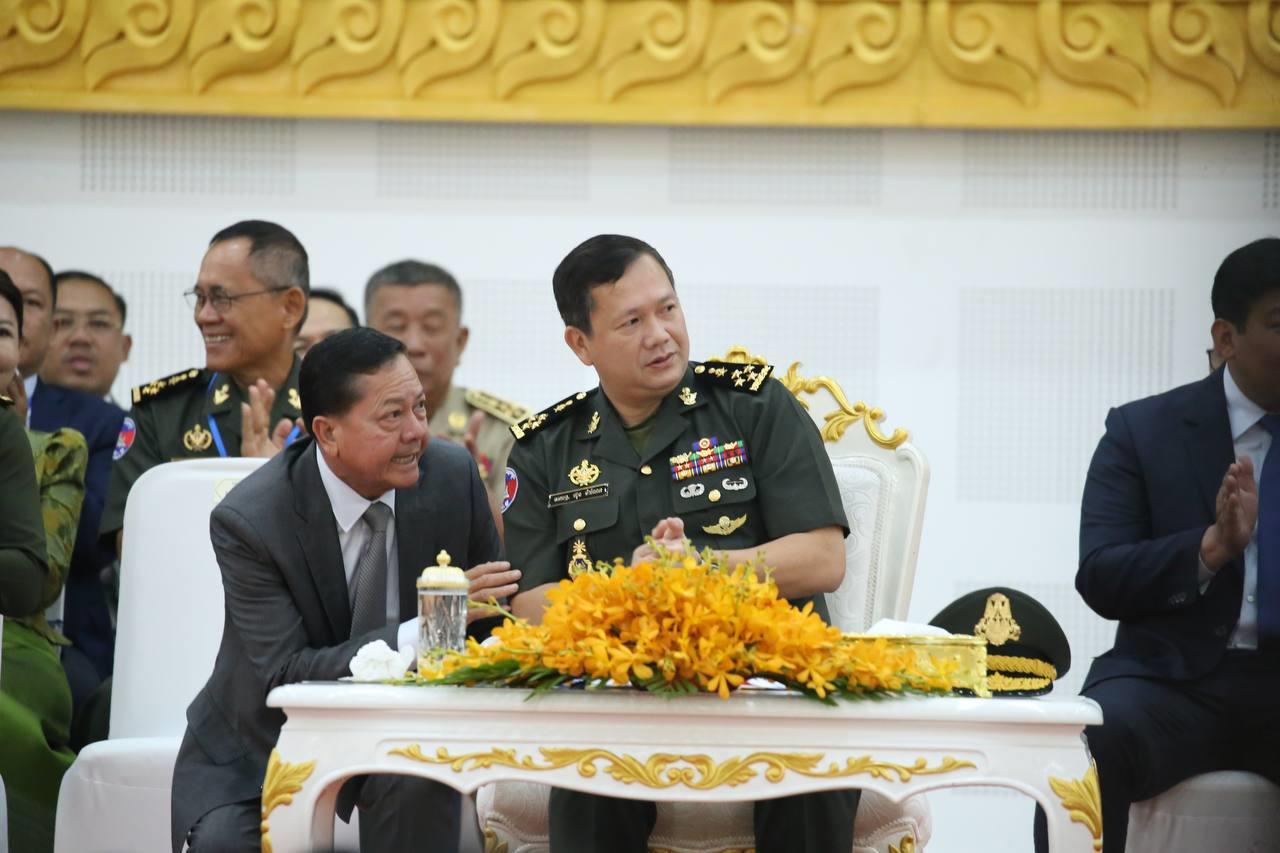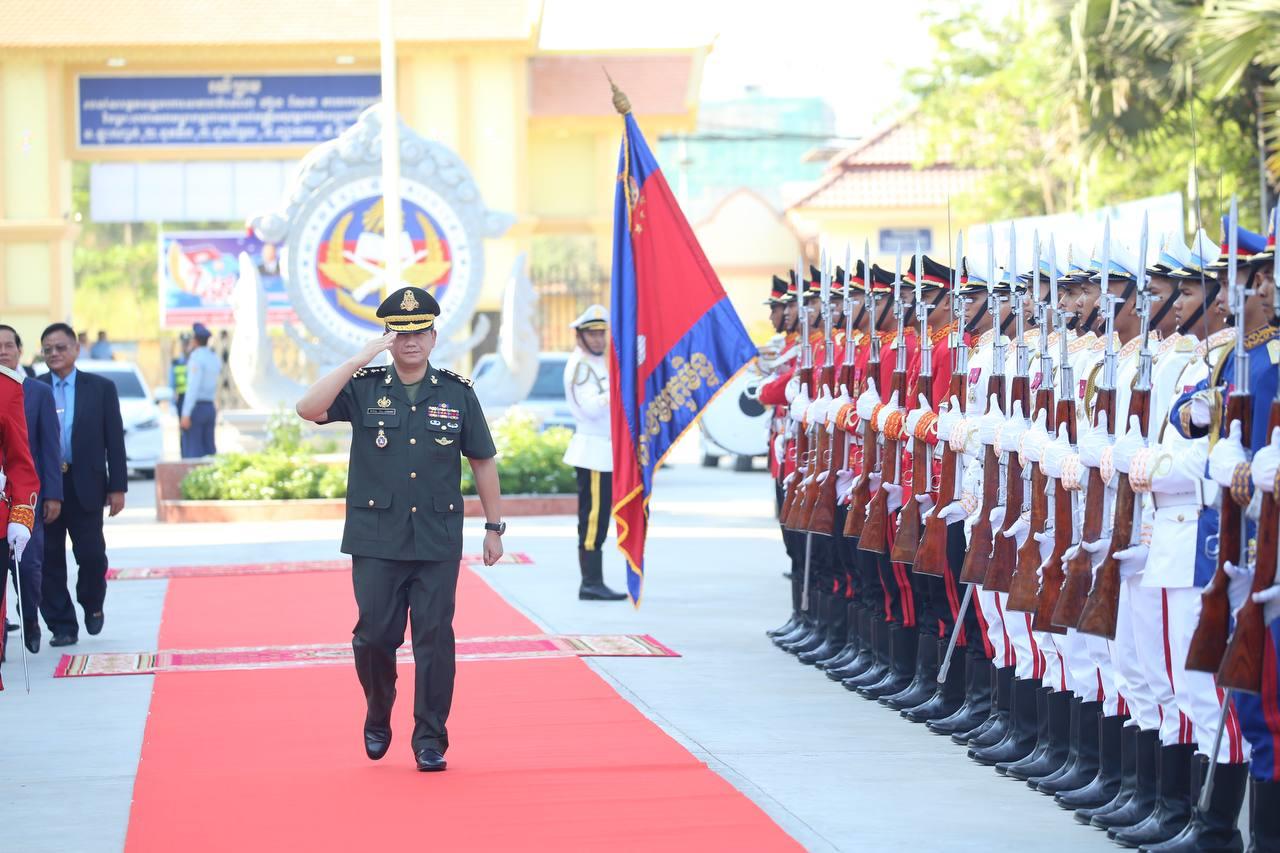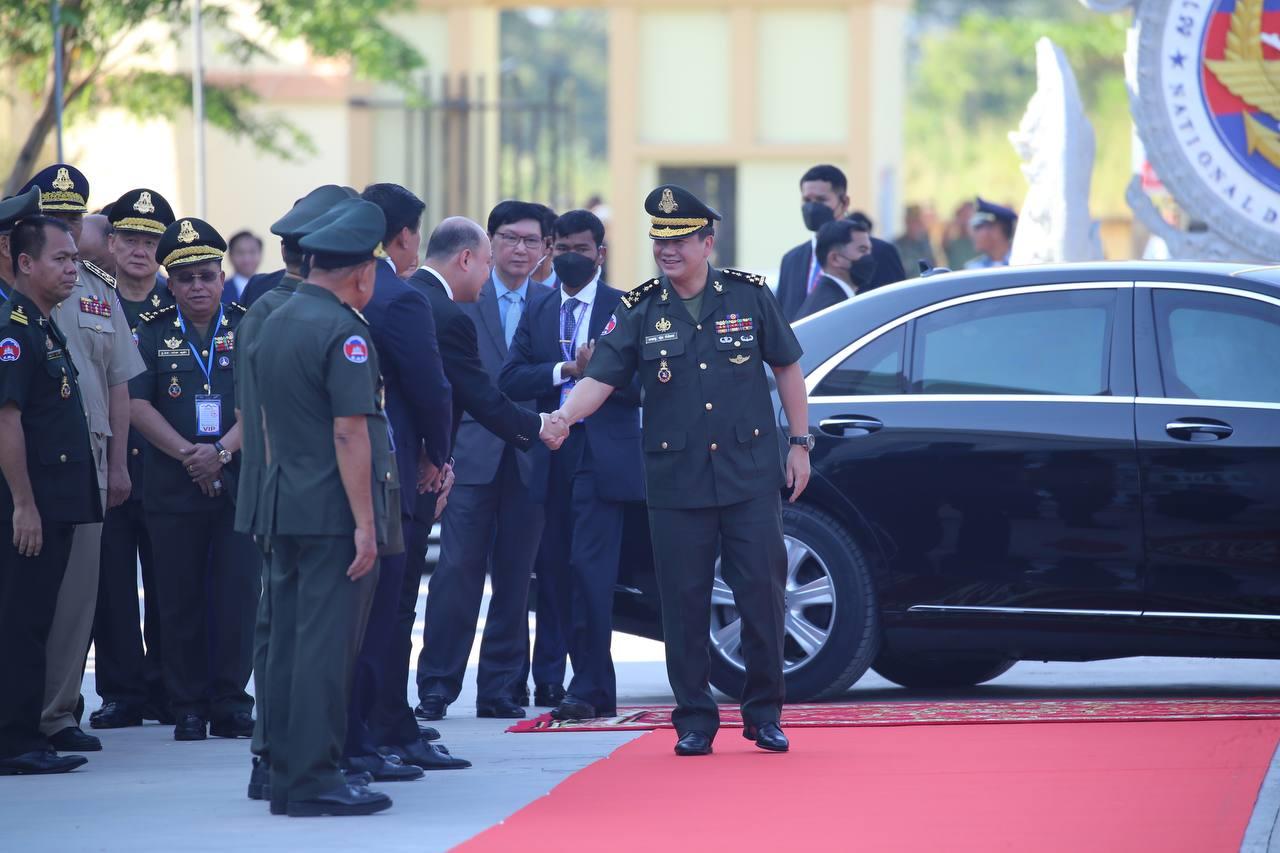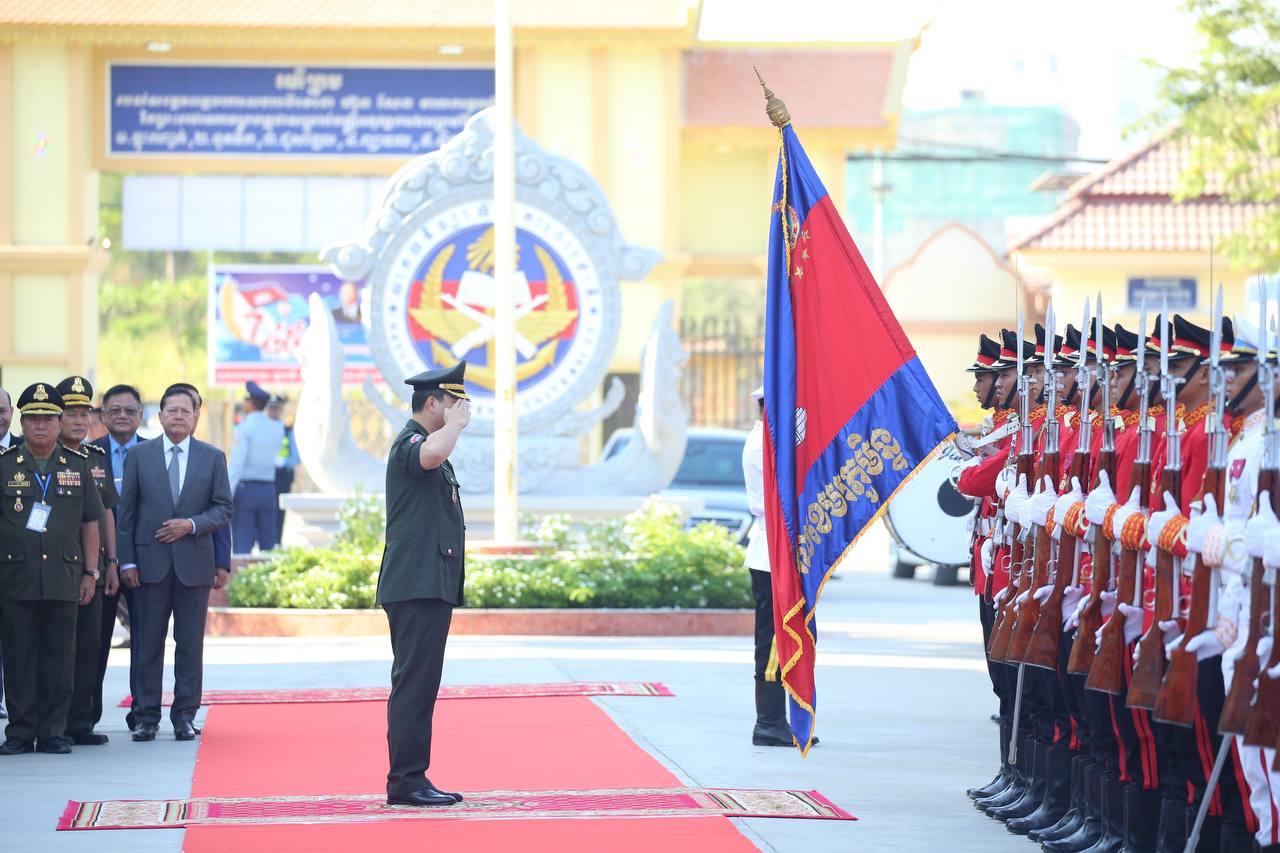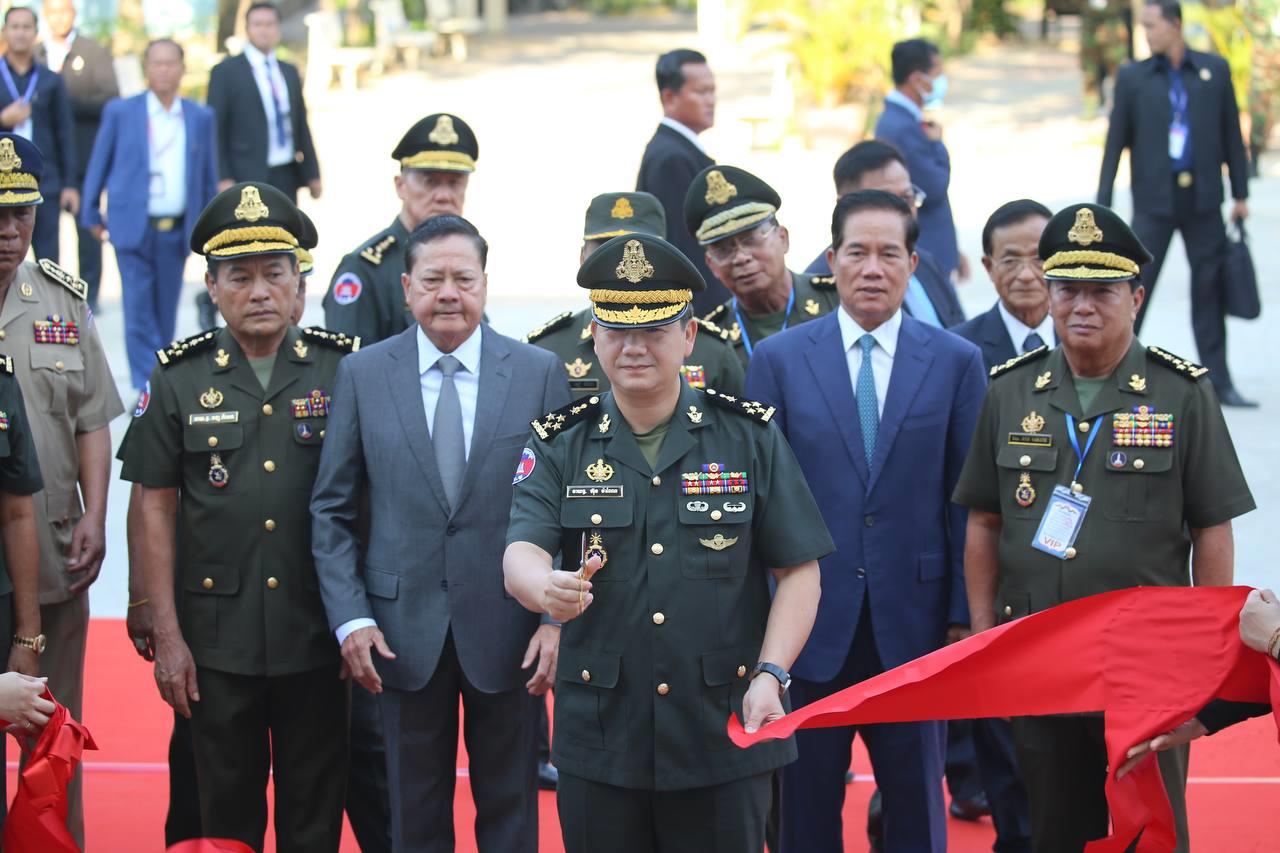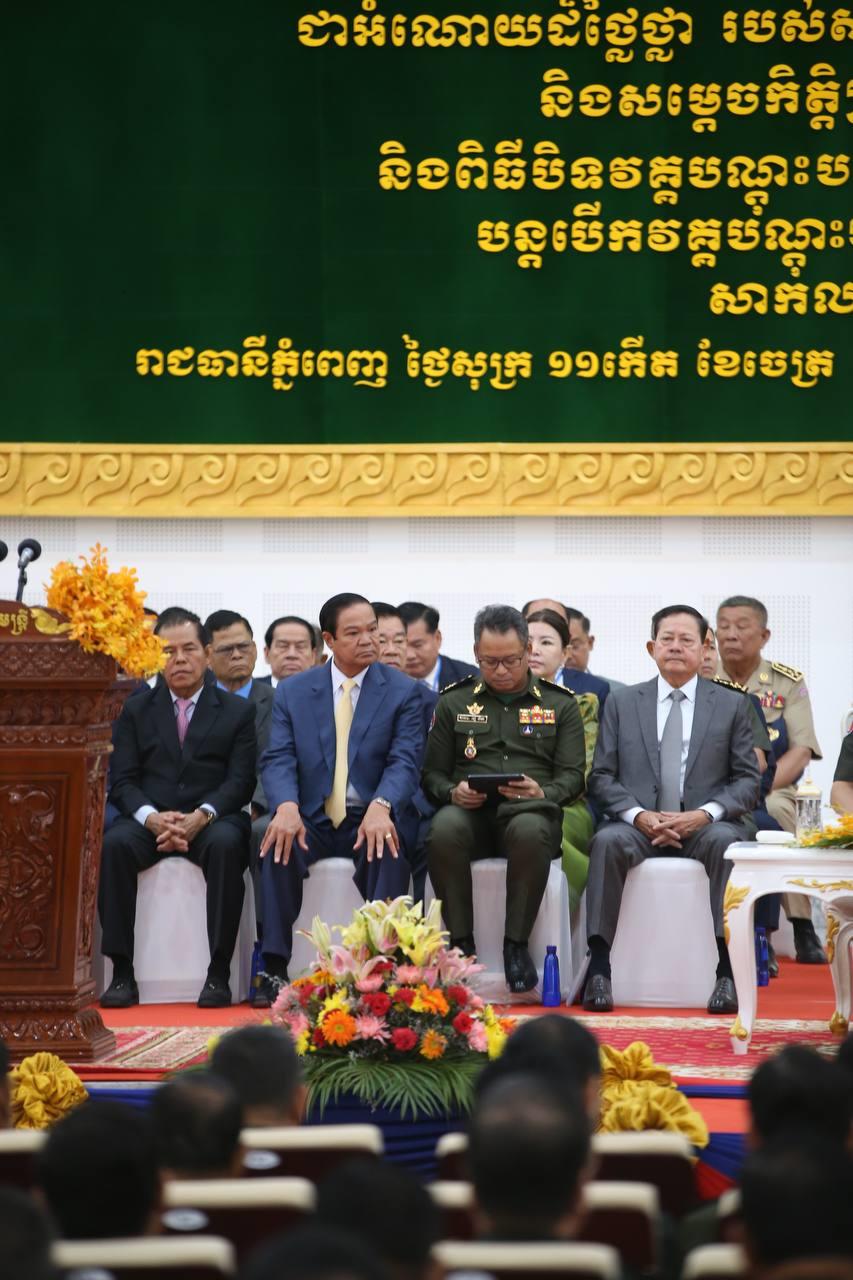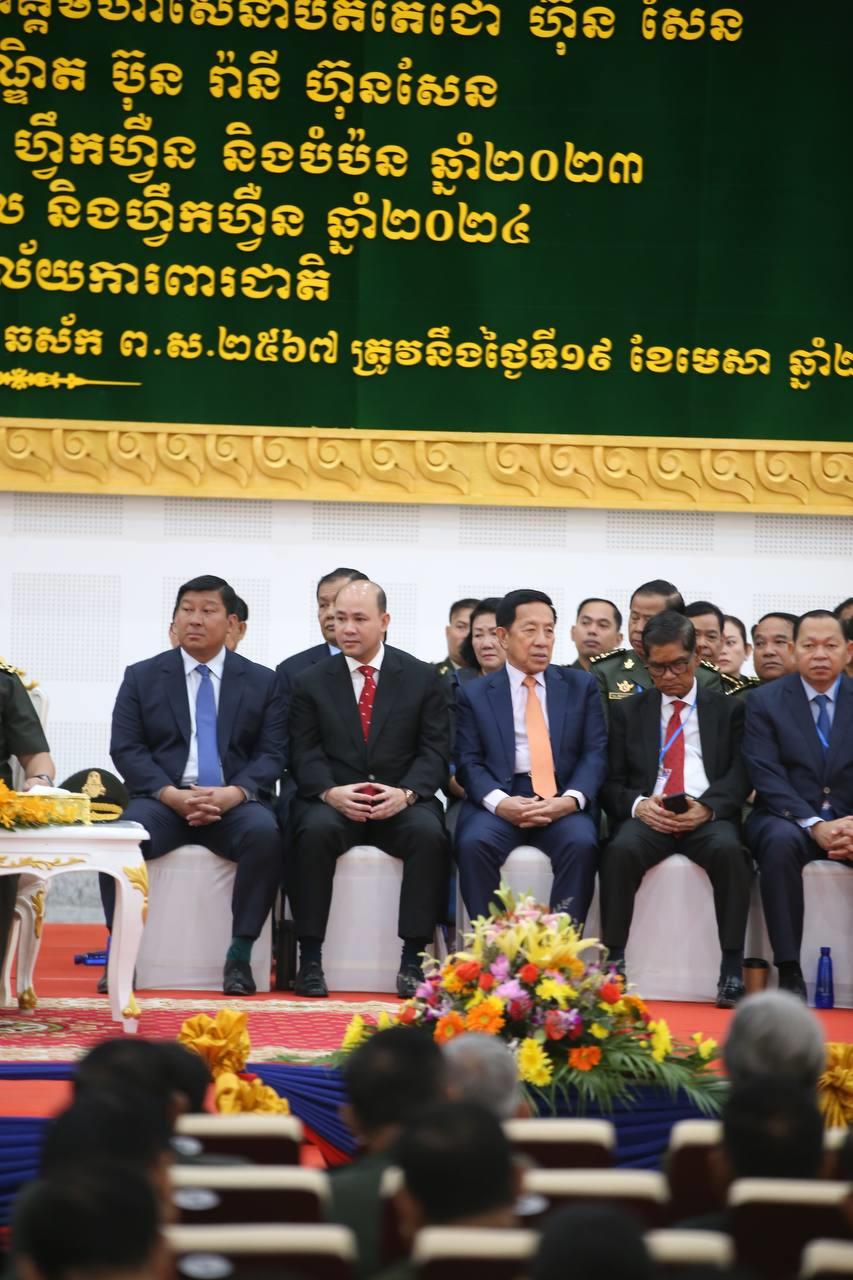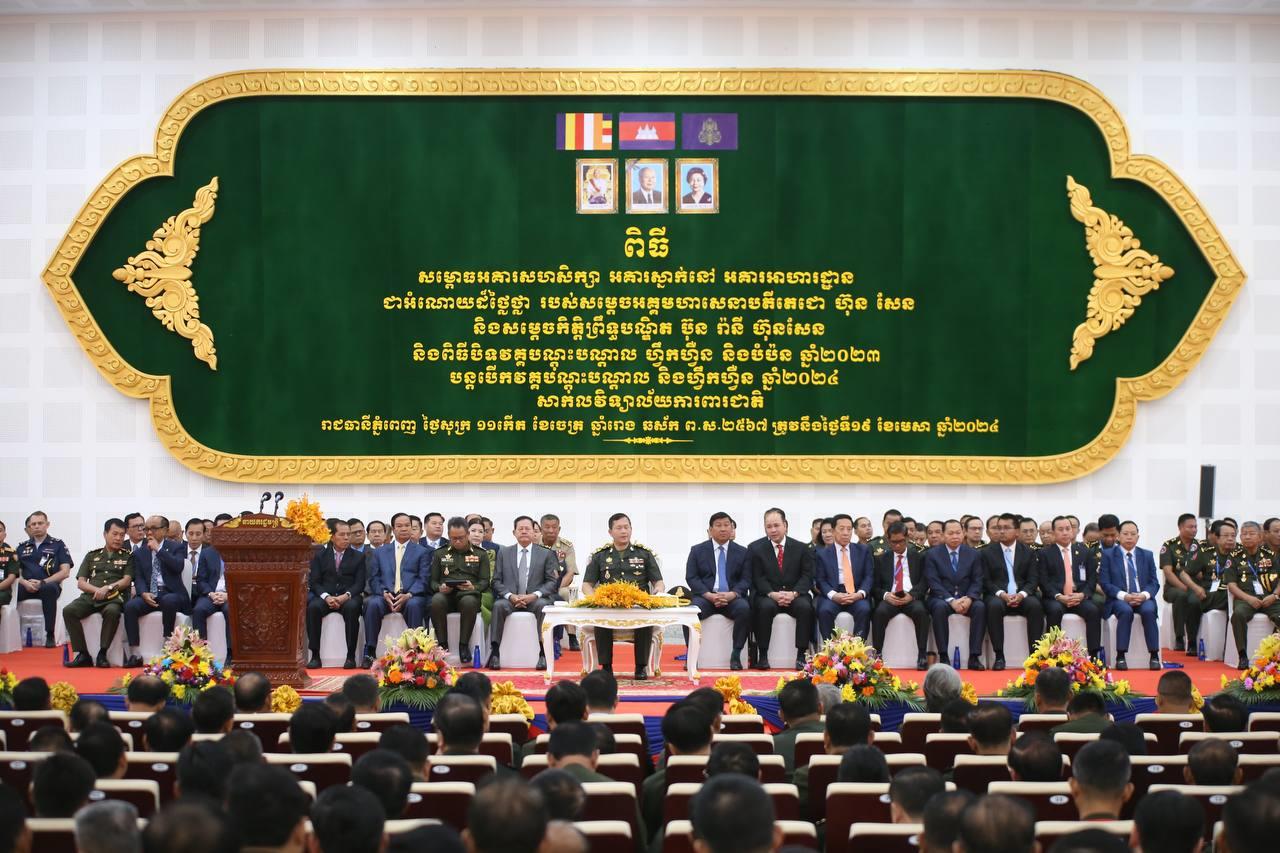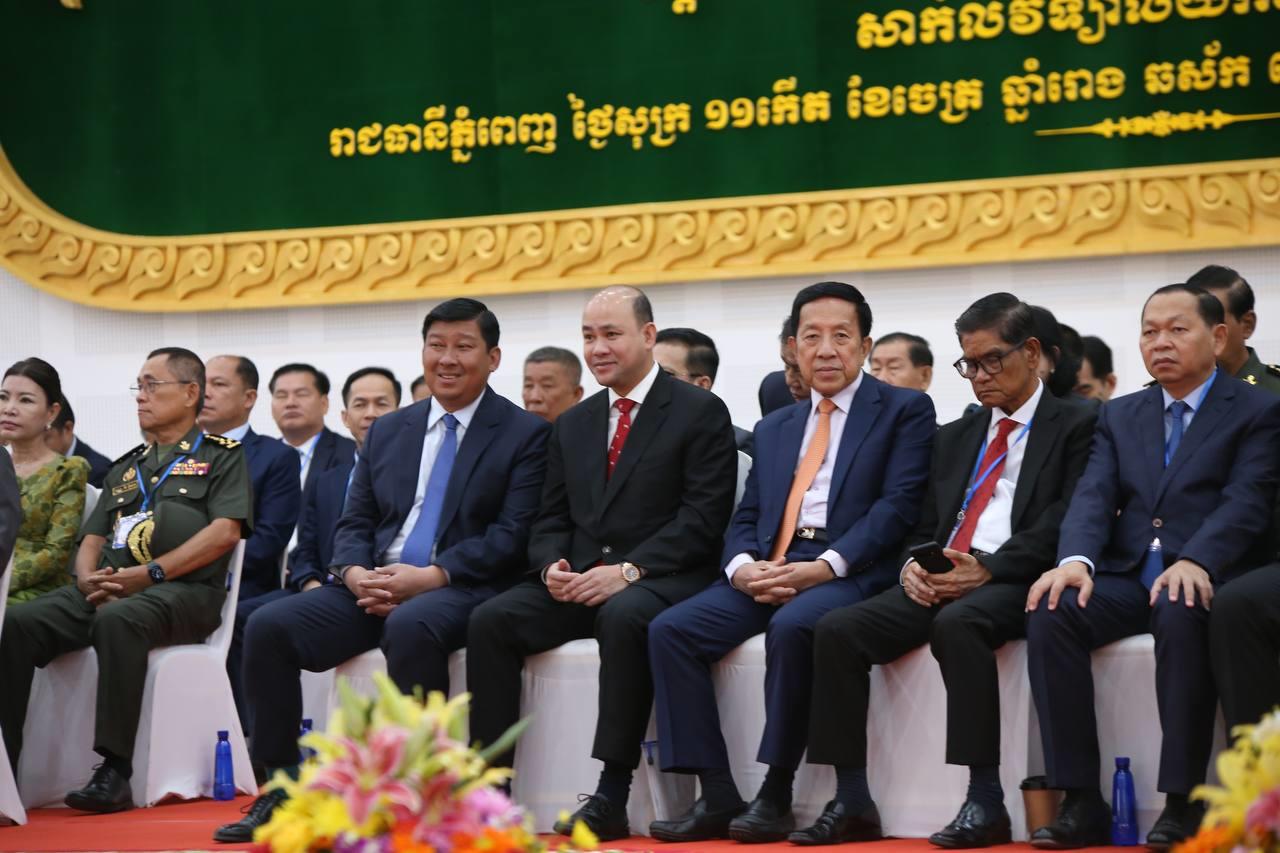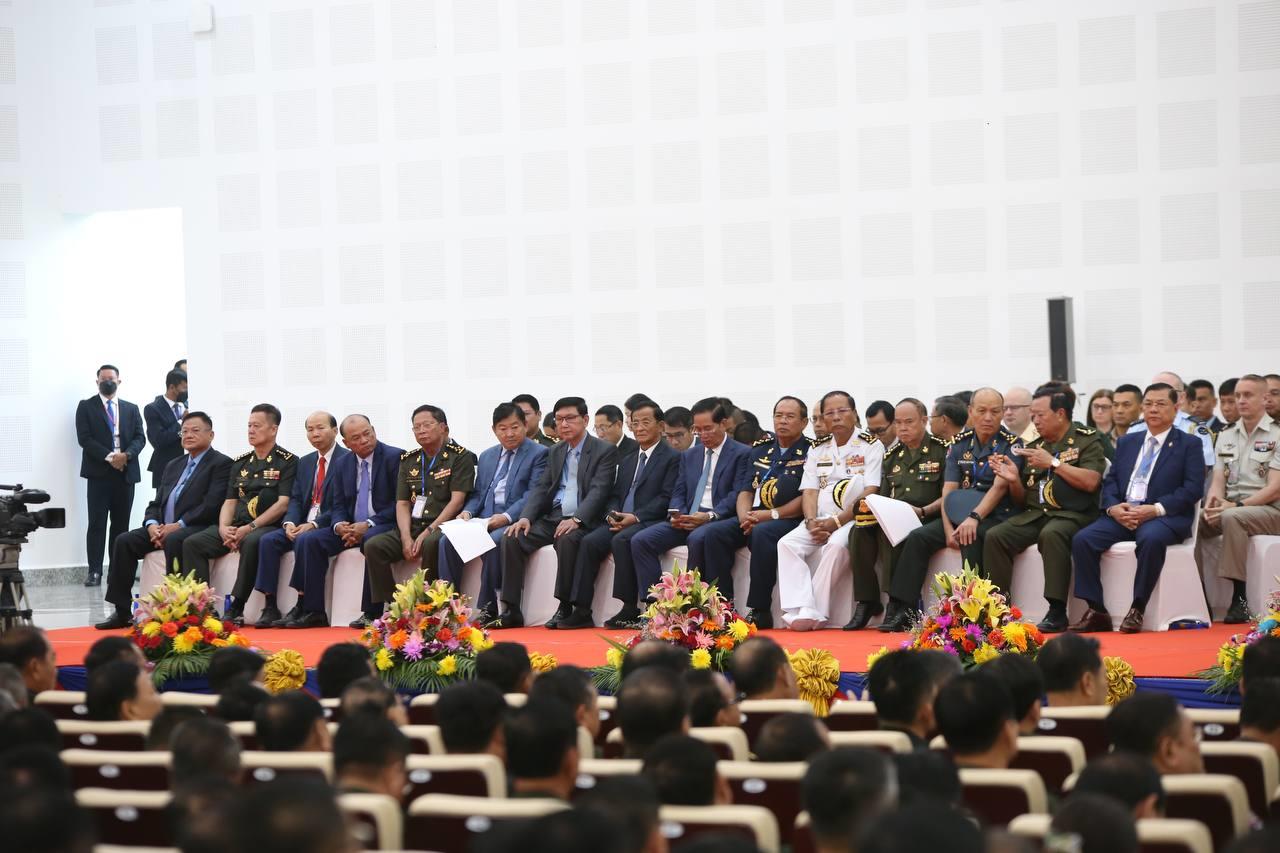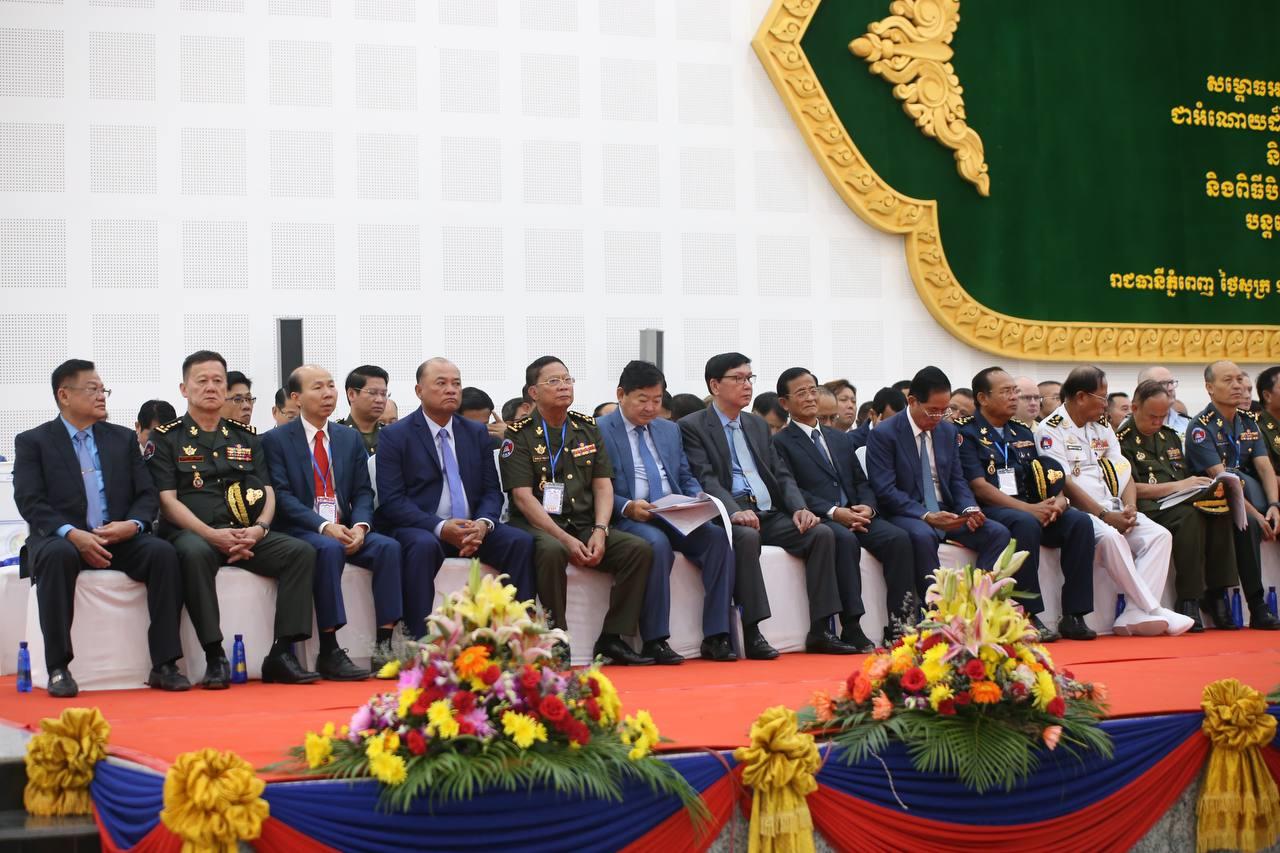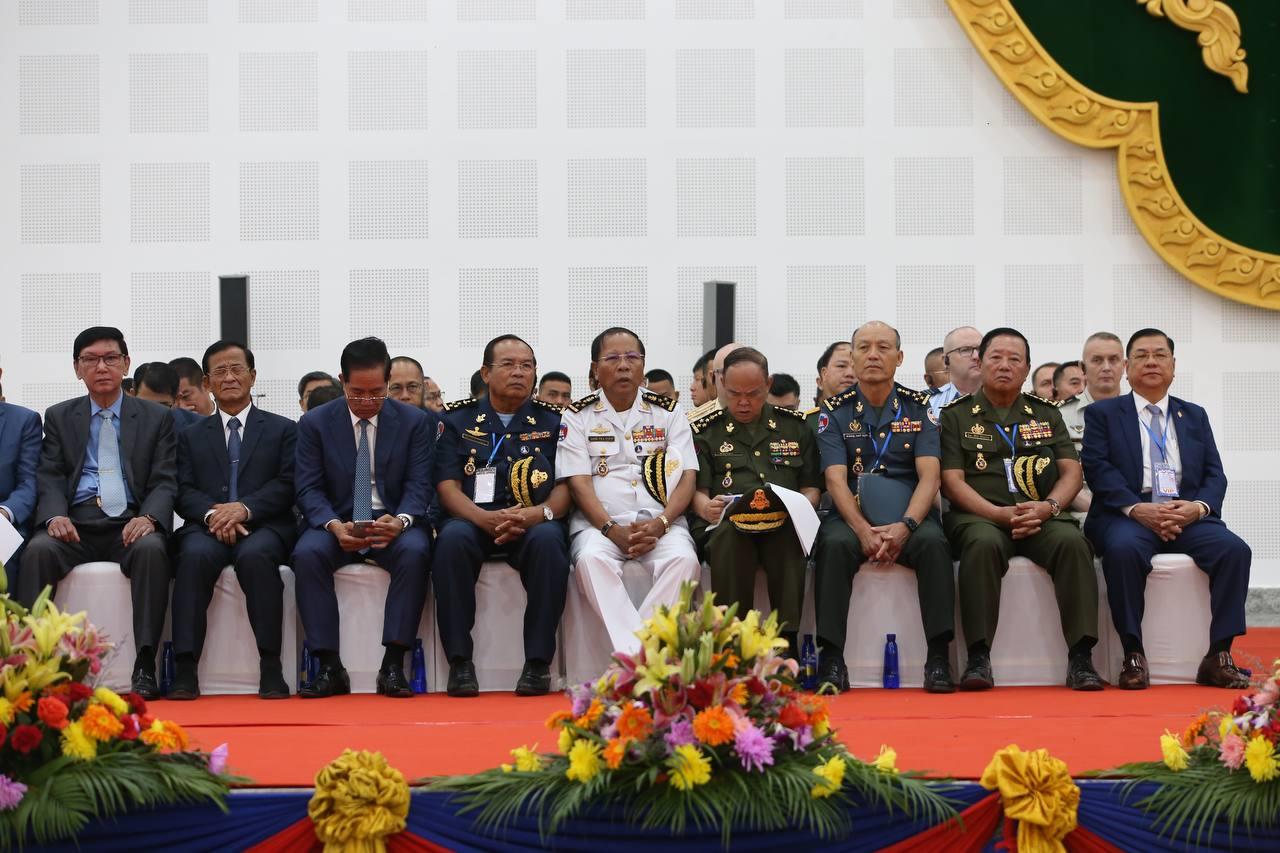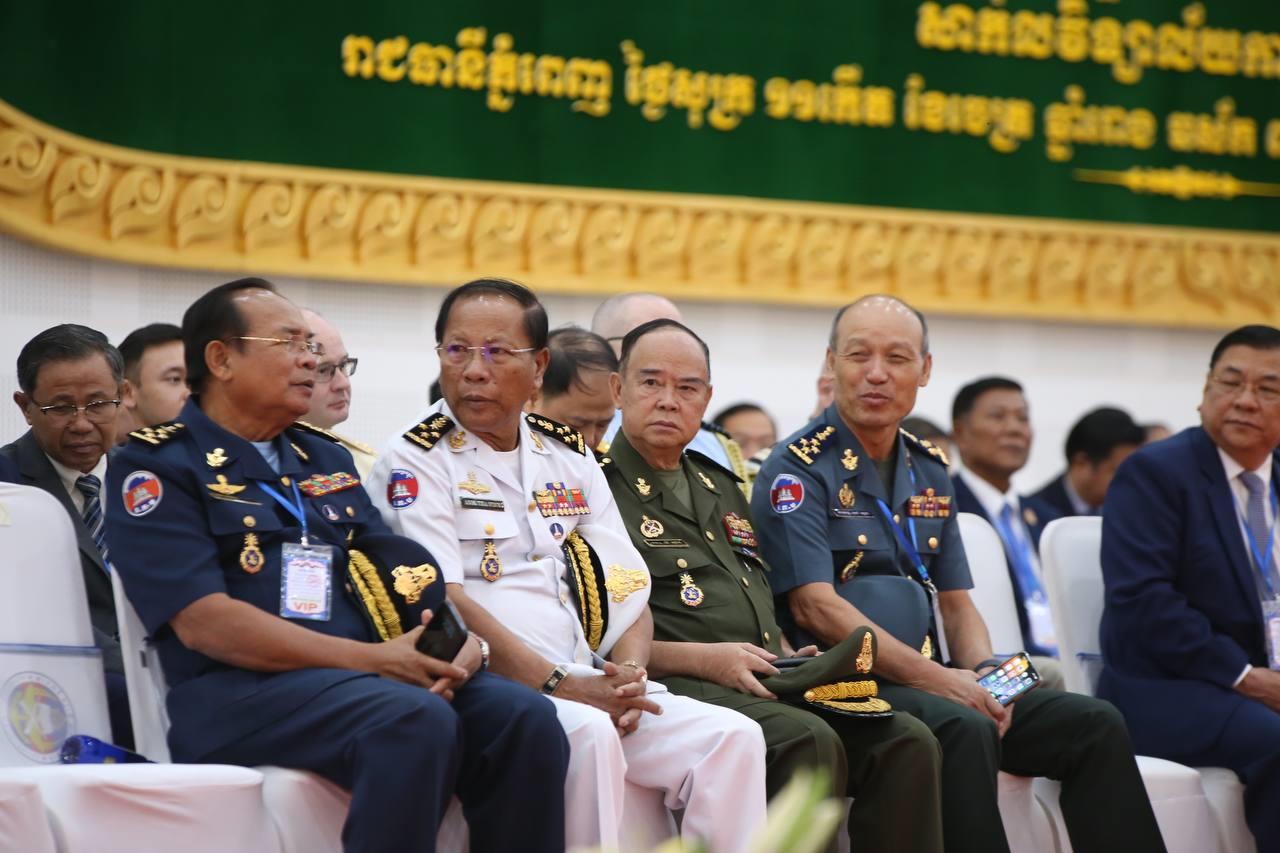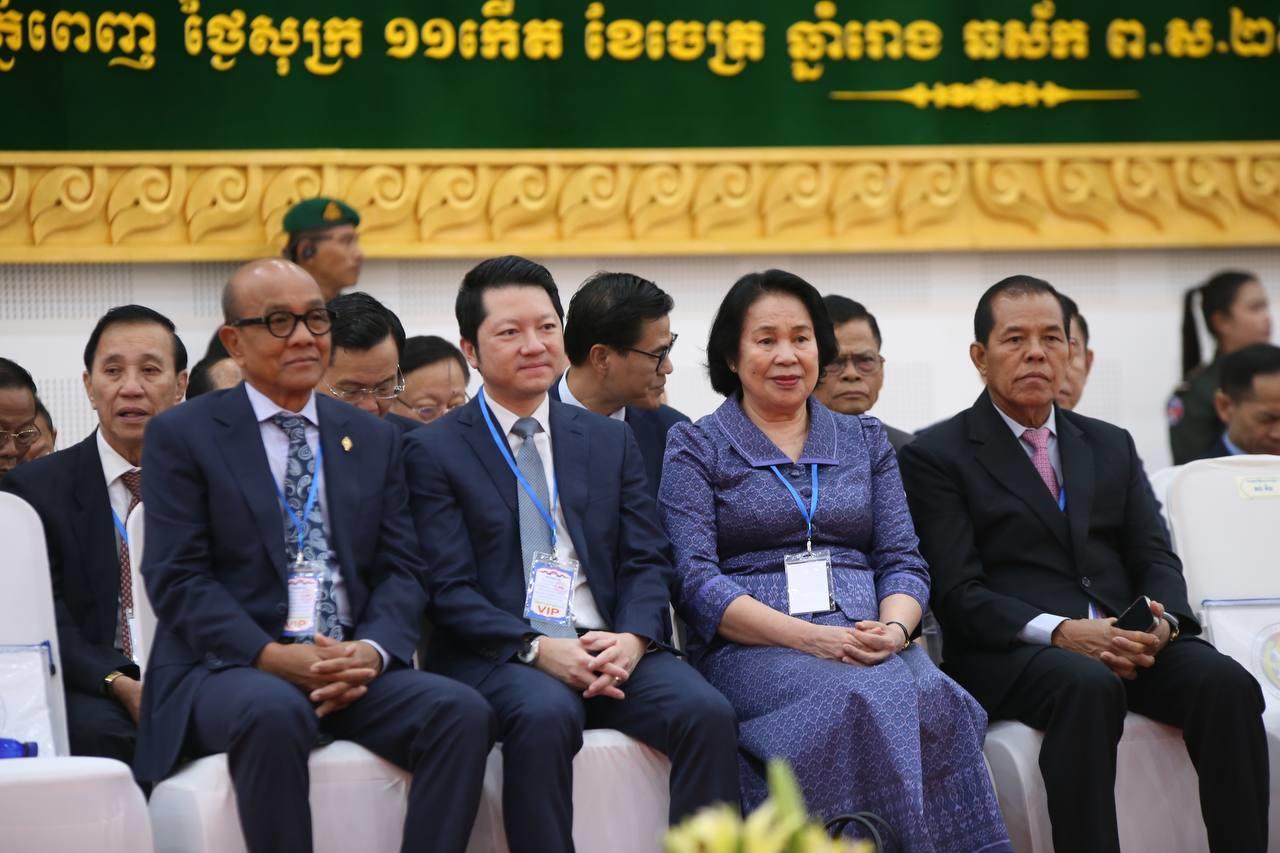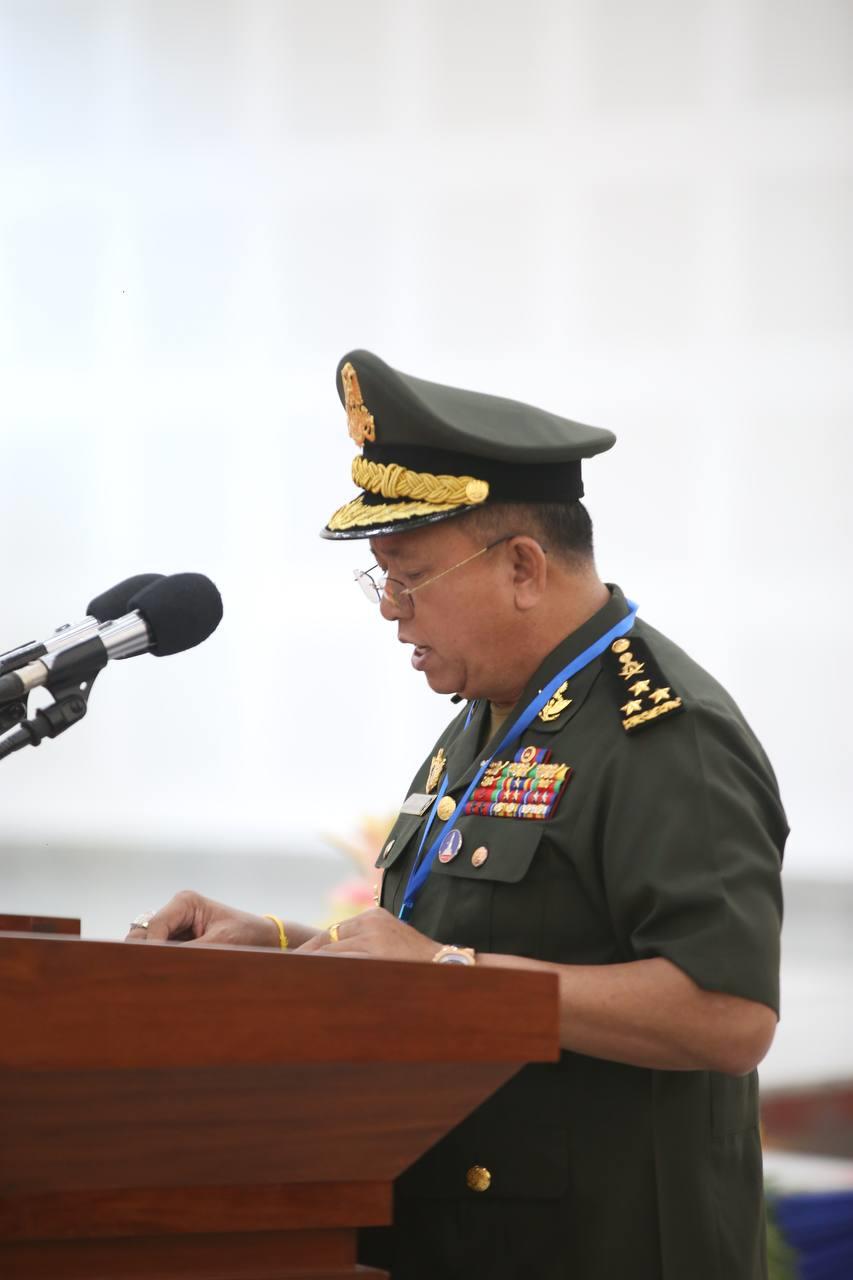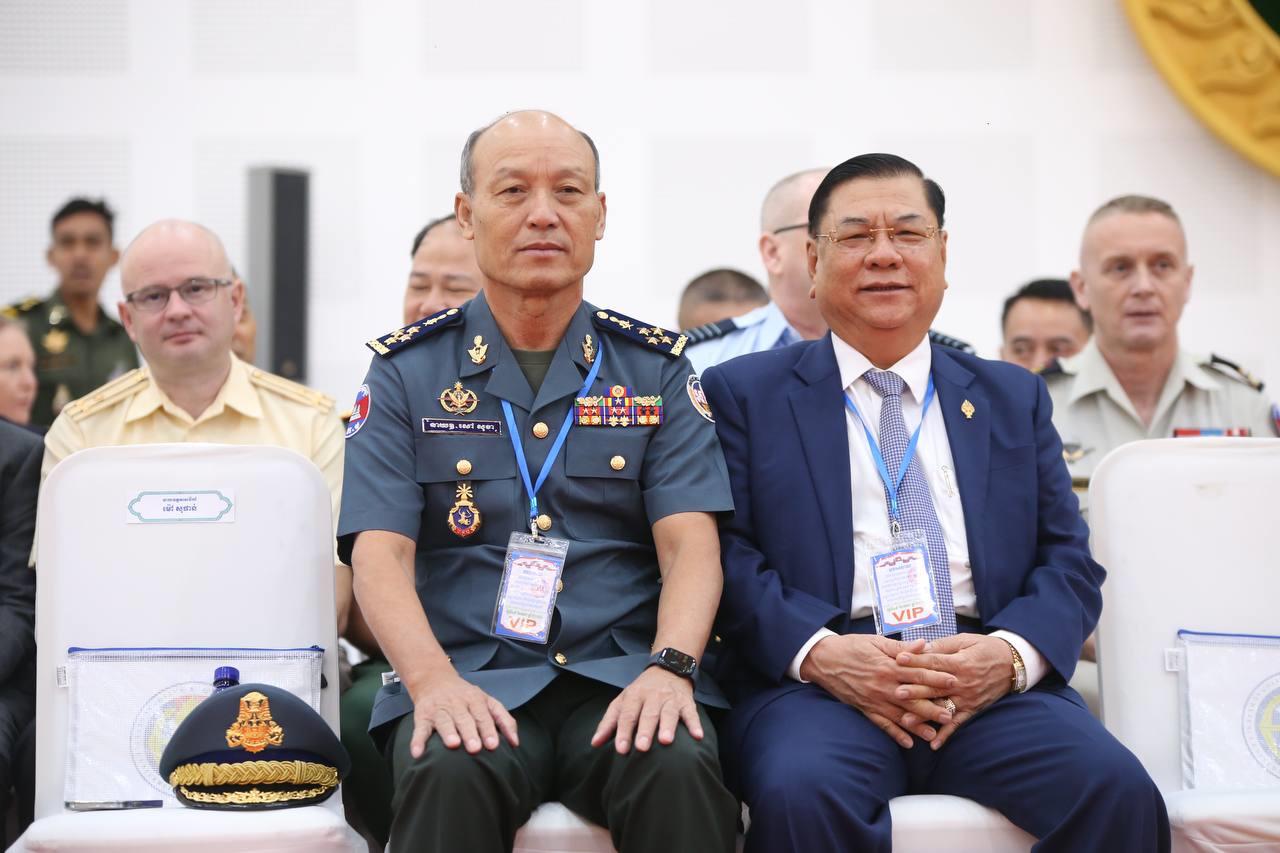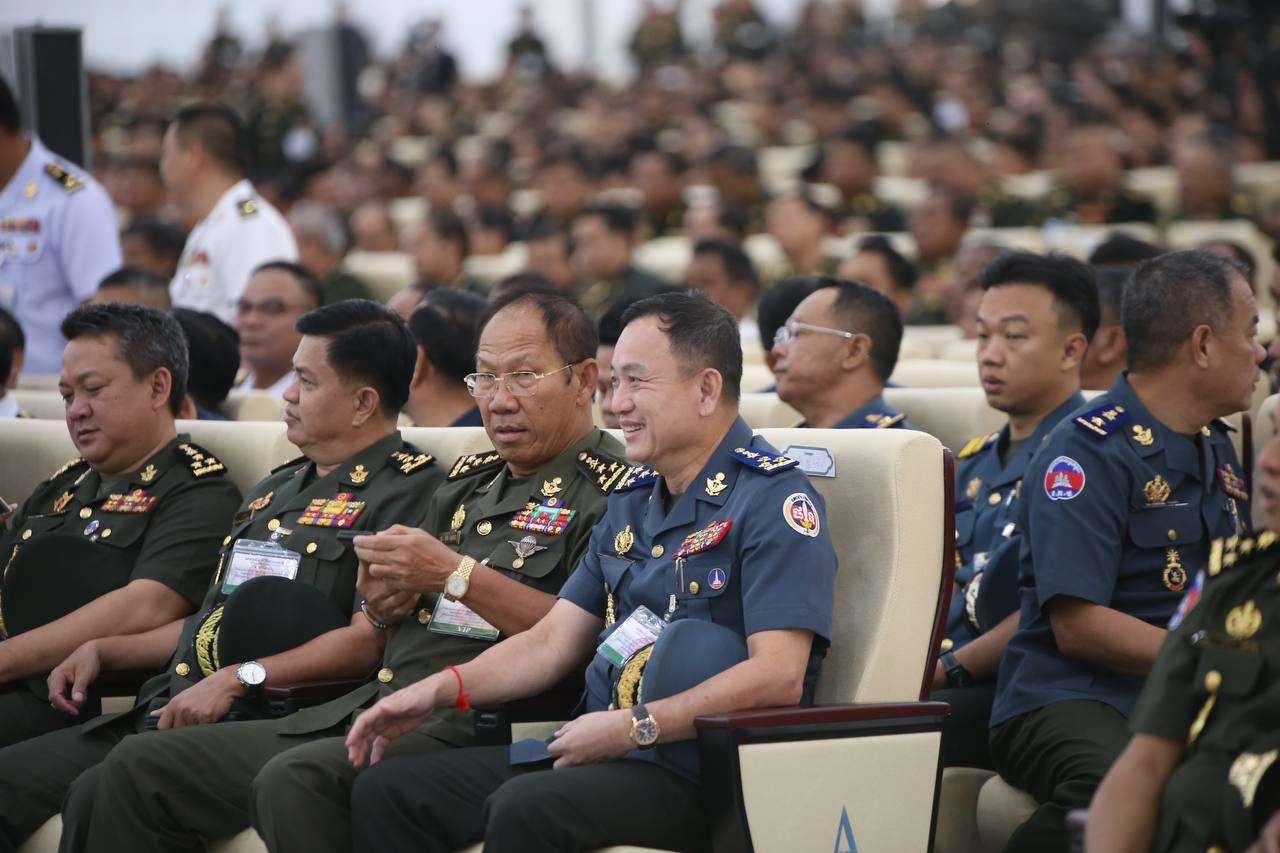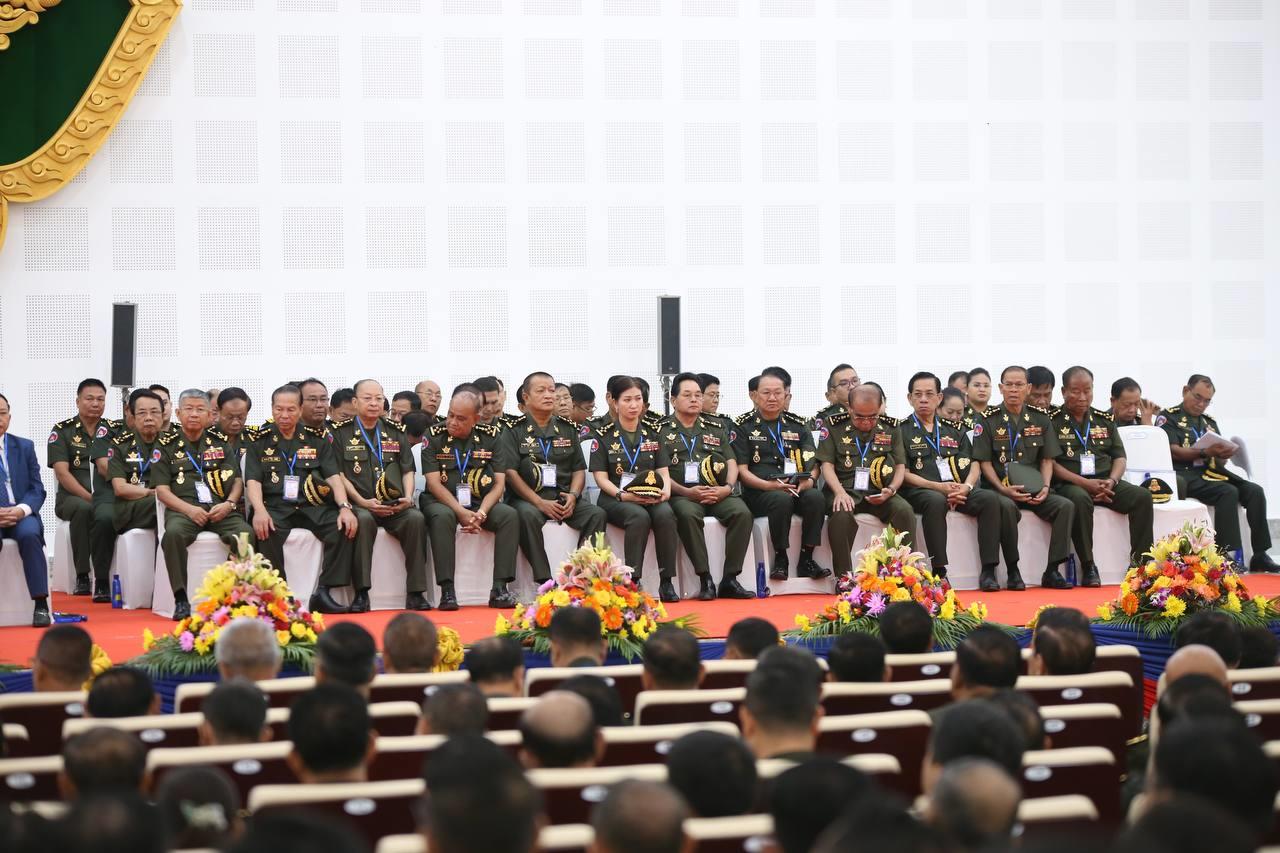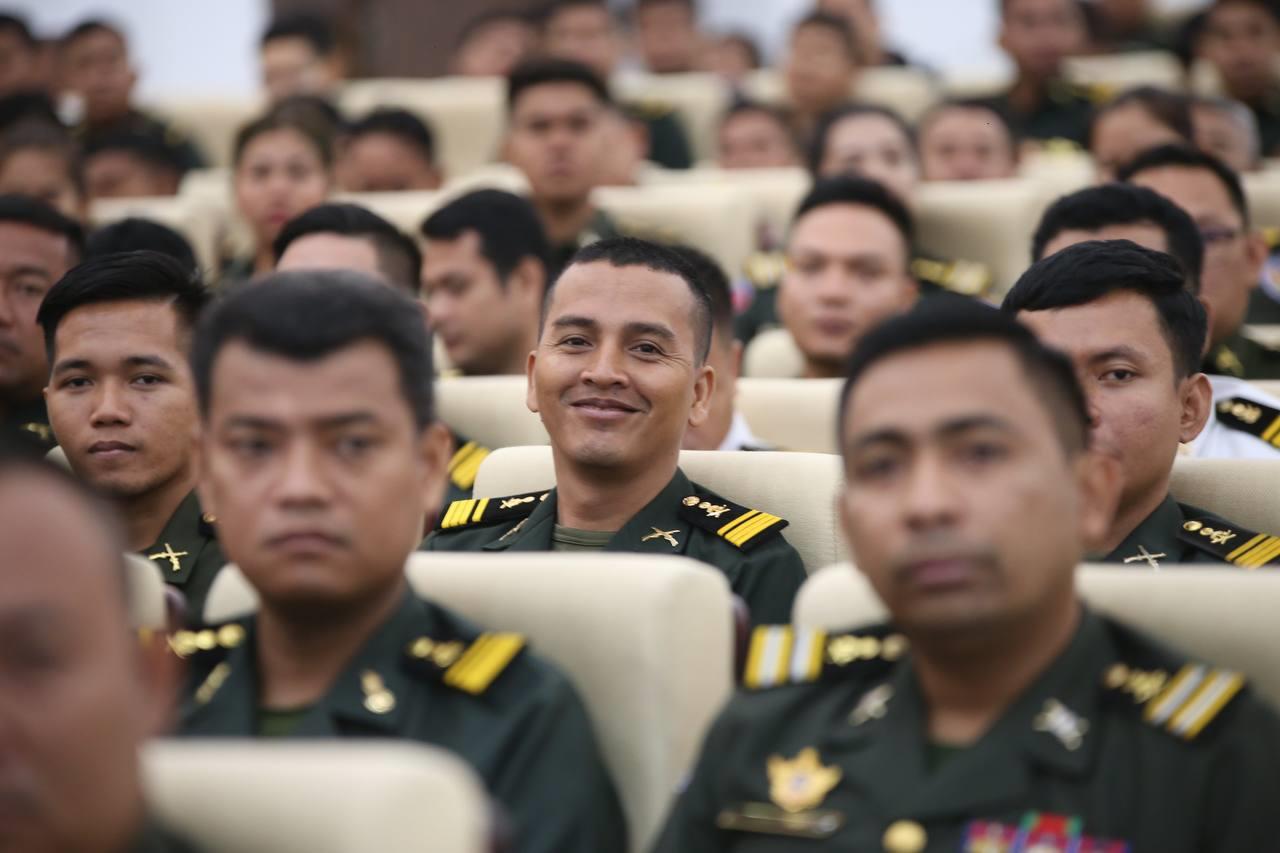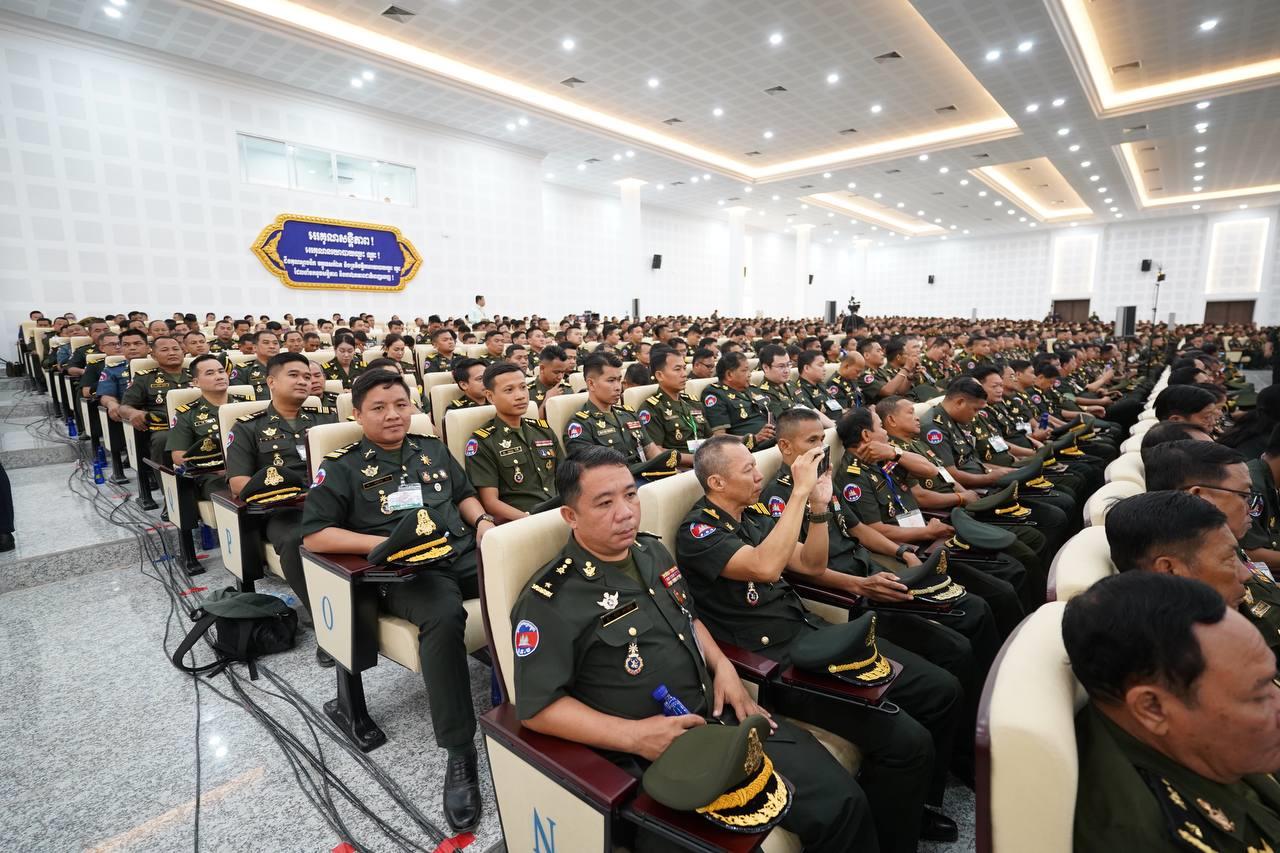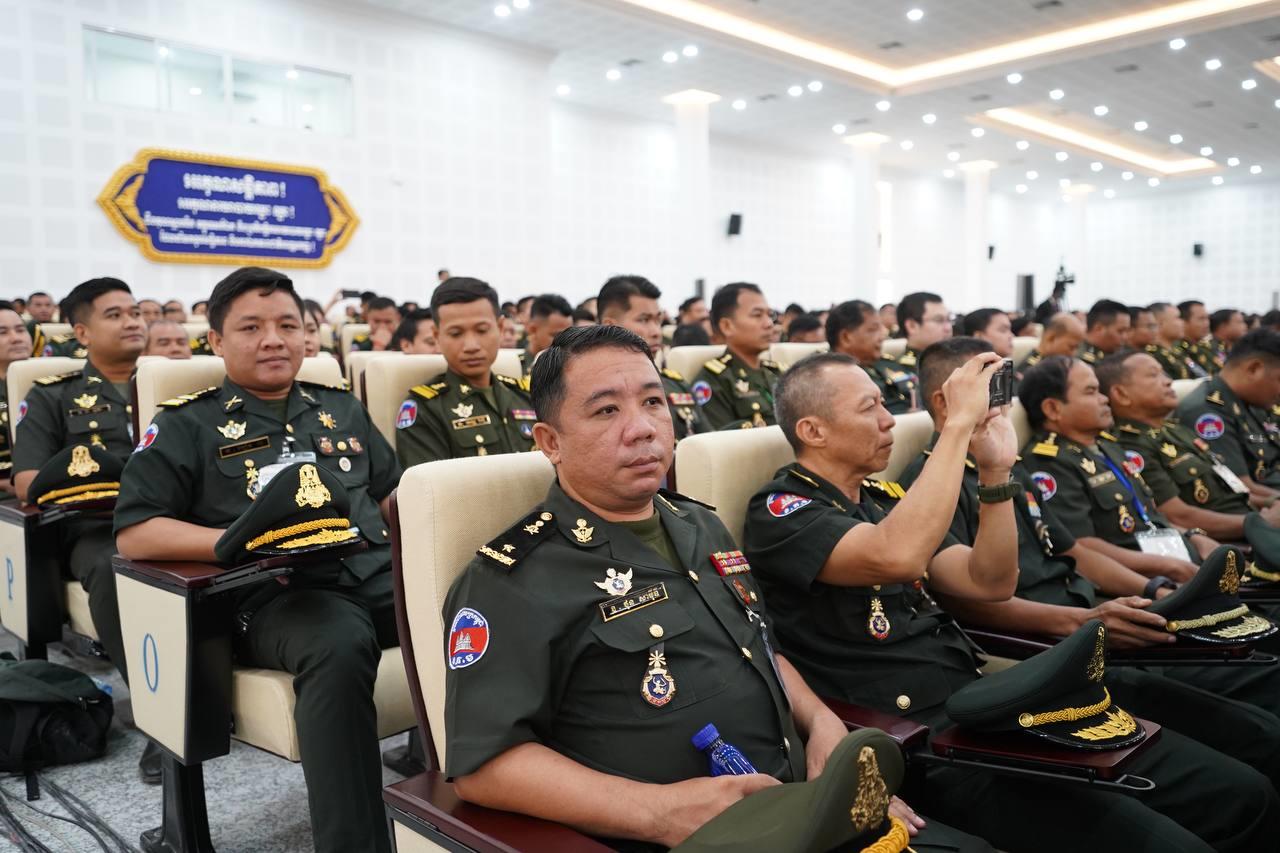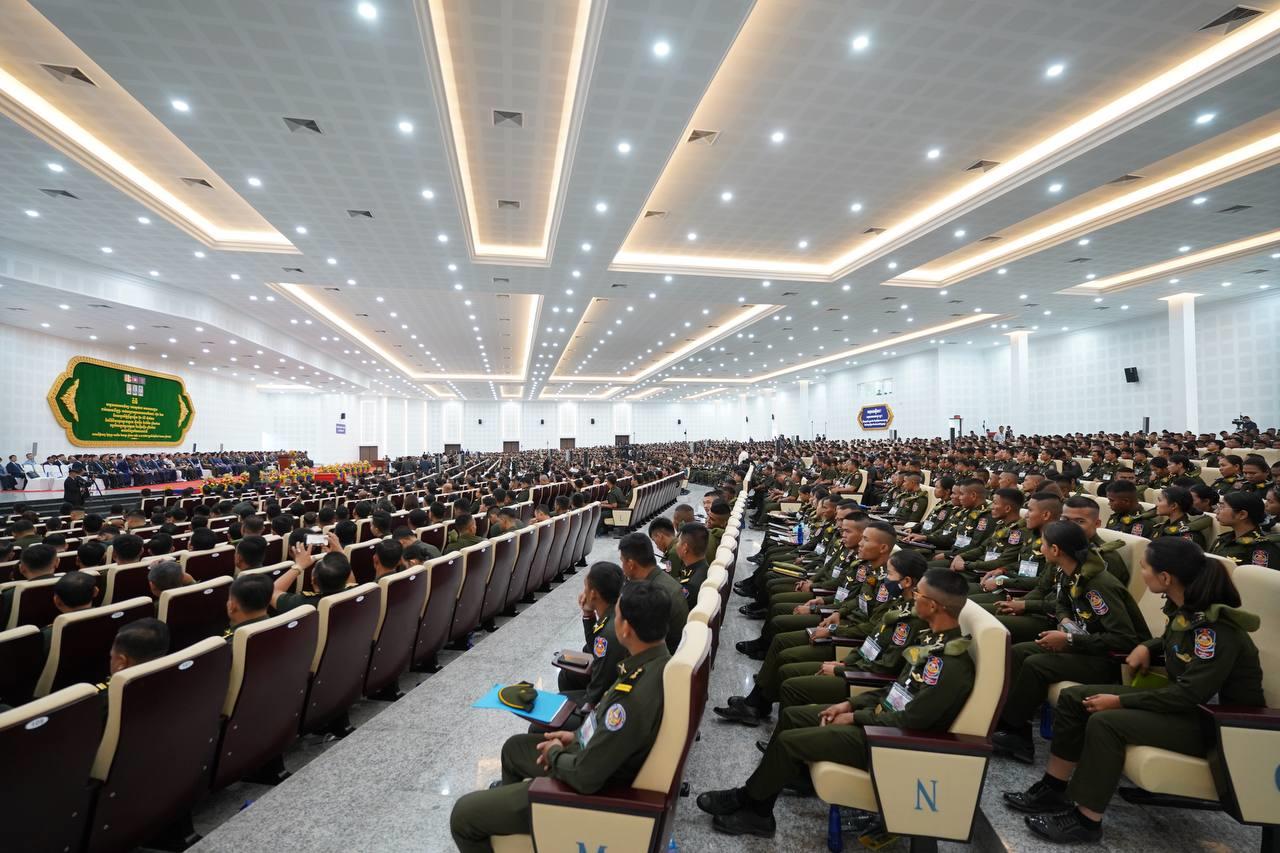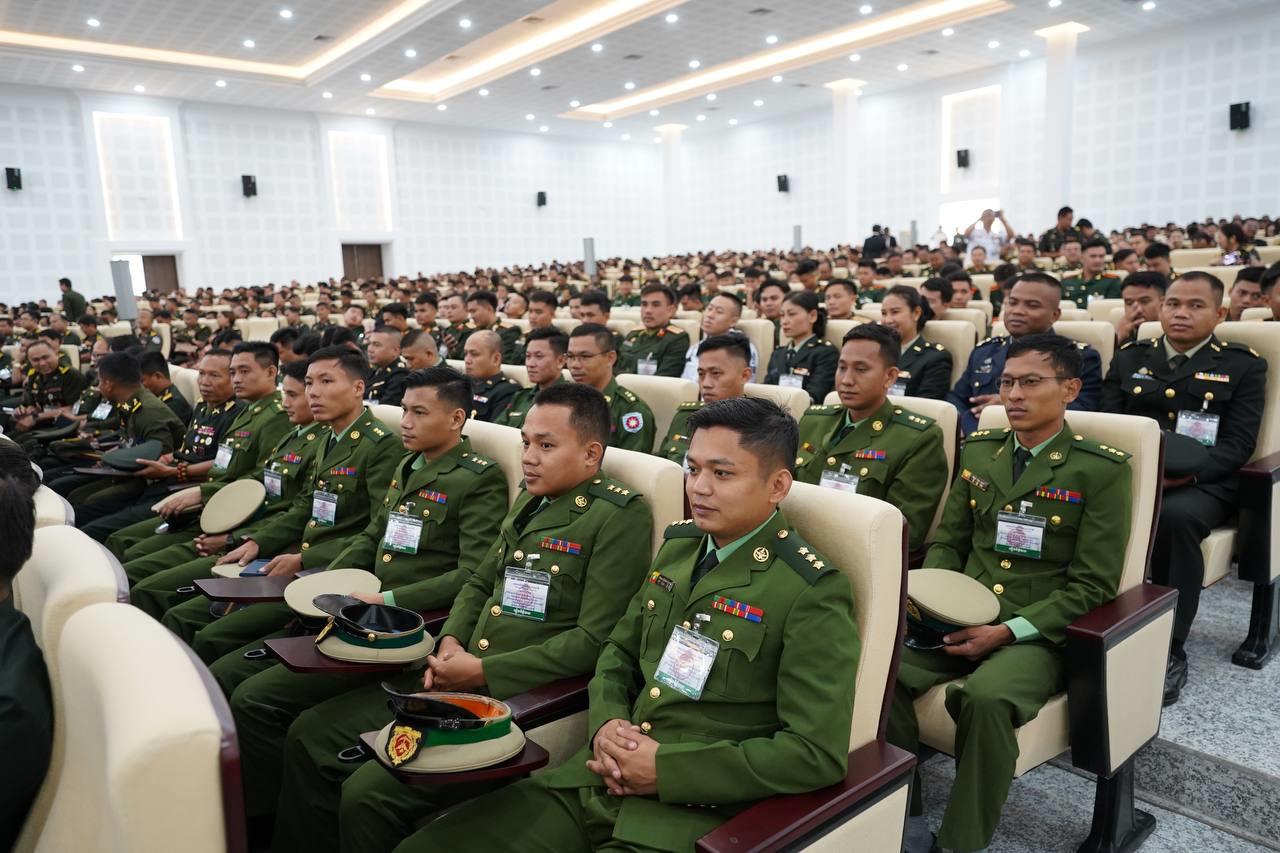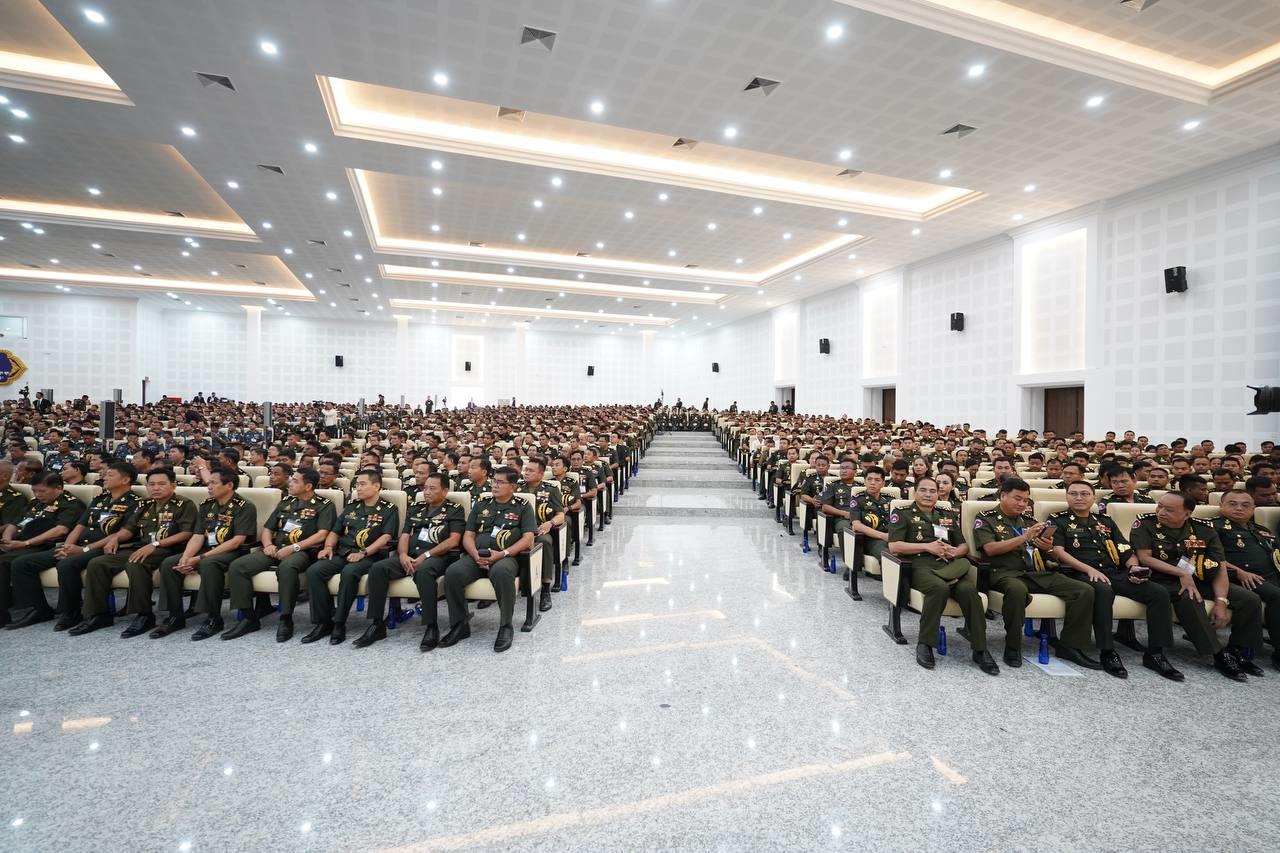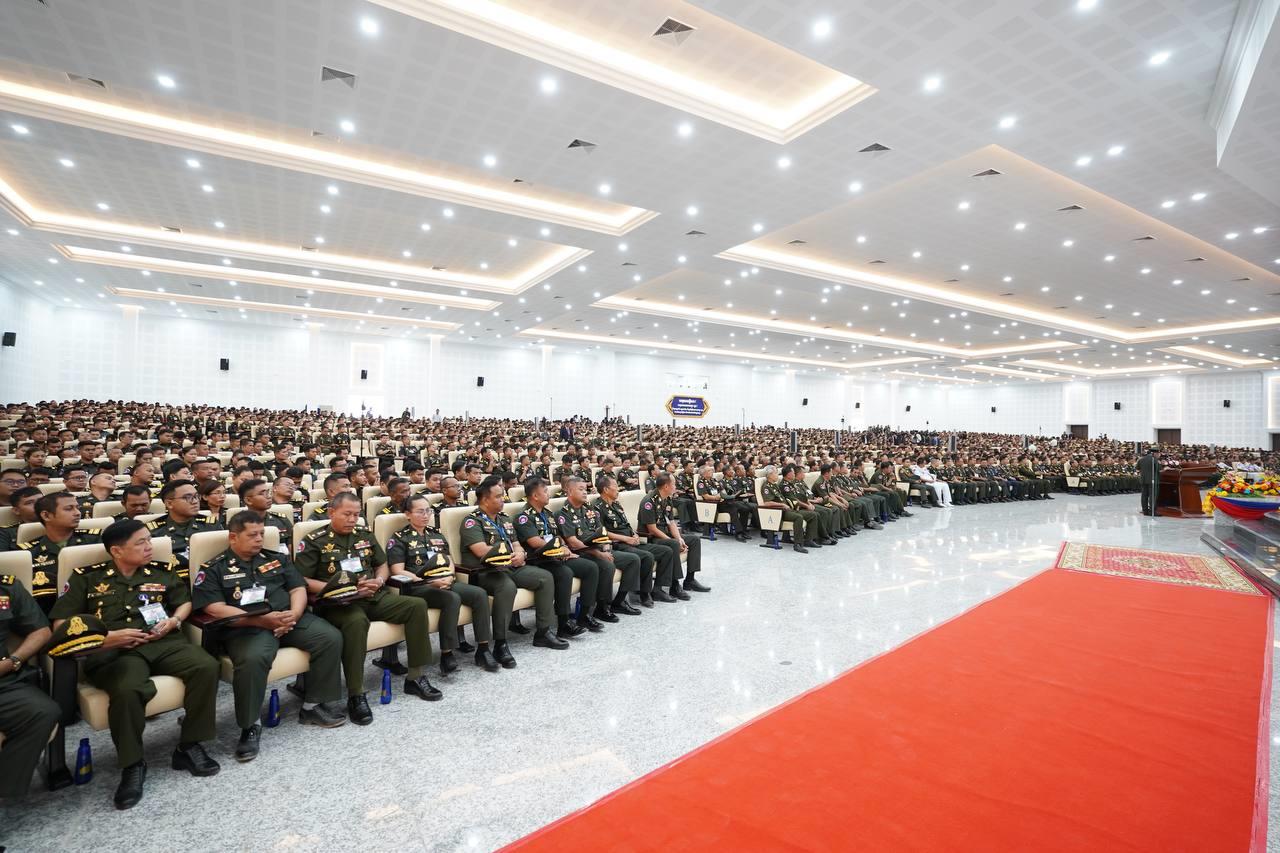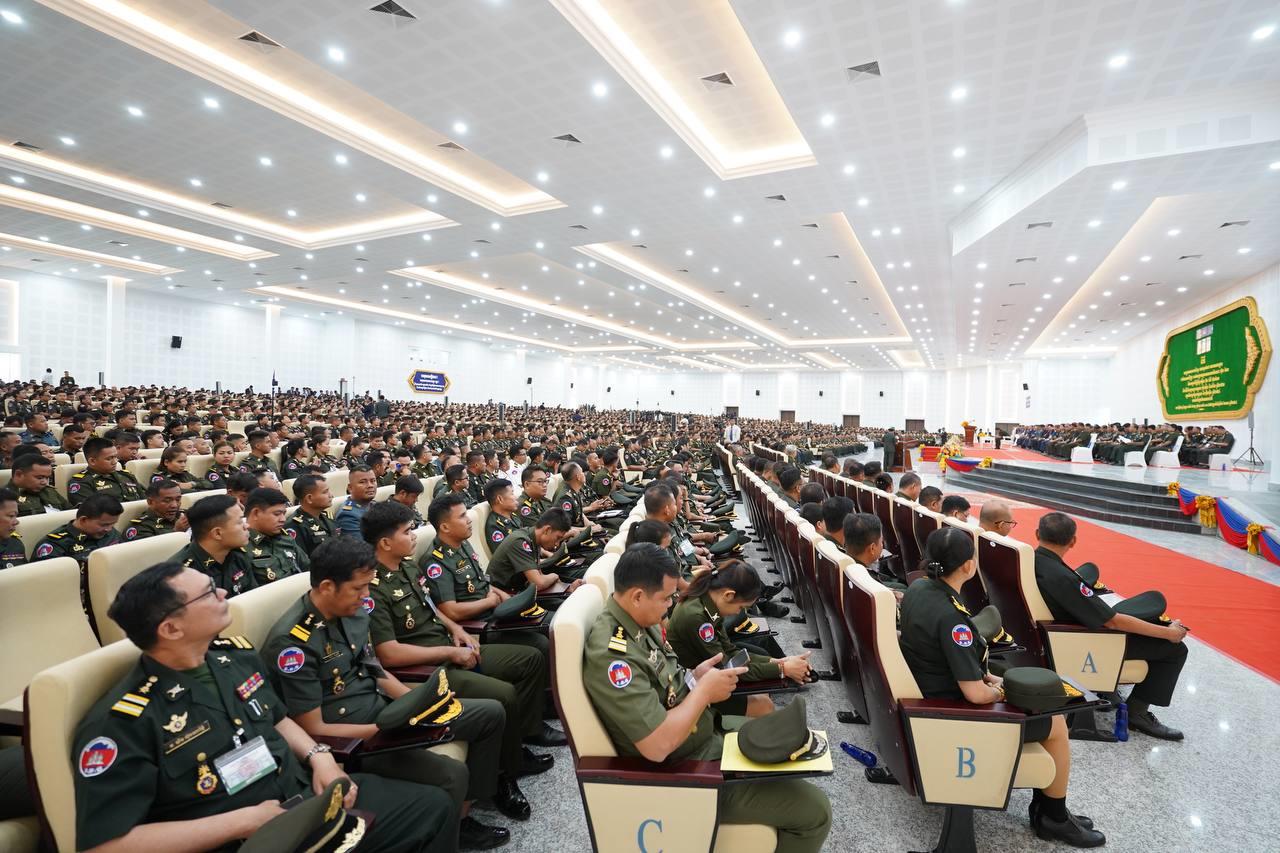Phnom Penh (FN), Apr. 19 – Cambodian Prime Minister Hun Manet provided nine recommendations to the Royal Cambodian Armed Forces (RCAF) to enhance defence capabilities, speaking on Friday (Apr. 19) during an inauguration of buildings and closing 2023 training course of the National Defence University.
On this occasion, Samdech Thipadei underlined that the RCAF must be organized into units loyal to the nation and the Royal Government, possessing adequate capacity to defend the independence, sovereignty, and territorial integrity of the Kingdom of Cambodia. They should also safeguard peace and preserve all social achievements, as well as the gains from the win-win policy of Samdech Techo Hun Sen. Furthermore, they should actively contribute to building and strengthening the rule of law, promoting national development, and remain prepared to fulfill all tasks assigned by the Royal Government in any circumstance.
To ensure the successful implementation of these tasks, Samdech Thipadei outlined several fundamental recommendations, as follows:
1. Continue to undertake comprehensive reforms across all sectors of the RCAF, from leadership to unit levels, to achieve transparency and accountability in a spirit of unity and responsibility.
2. In the field of national defence, the RCAF must stand as a formidable force, possessing full capacity, strong determination, conscience, and good discipline to steadfastly defend national independence, sovereignty, territorial integrity, security, and social order under all circumstances. They must strive to counter all tactics and efforts of hostile forces, both domestic and foreign, aiming to foment a color revolution in Cambodia and sow insecurity within society. At all costs, they must uphold peace and actively contribute to the prevention and suppression of all crimes in a timely manner.
3. Reform of the unit's organizational structure must adhere to the principle of "functional differentiation, roles, and duties" within the unit to eliminate any overlap and ensure strict adherence to each step. Additionally, the size of the unit's personnel must be appropriate to the construction sites of the units.
At the same time, achieving a balance between the number of military officers and soldiers is essential. Special efforts should be directed towards addressing situations of both surplus and insufficient numbers:
A. Thoroughly review the existing military service law and relevant legal documents, considering comprehensive amendments and additions to ensure the step-by-step implementation of the military service law in line with future defence duties.
B. During the recruitment and promotion process, adhere strictly to the principle of "meritocracy" in alignment with the positions and general statutes for soldiers of the RCAF. Evaluation should be conducted by the unit council and evaluation committee according to hierarchy.
C. Priority should be given to local training, with the exception of advanced technical skills training, which may rely on overseas training. This aims to train young officers in leadership, command, and management roles, ensuring a rotation of officers for leadership and management positions within units. The deployment of military personnel to military academies should follow the principles of military service selection for each course, as outlined by the Ministry of National Defence.
4. Regarding training and development of human resources, particularly for nurturing young officers who will assume leadership and managerial roles at all levels of the unit:
A. Must continue building and strengthening the ranks of military personnel, as well as developing teaching materials for all skills across all subjects to ensure that all qualifications meet the highest standards and align with the advancements in modern science and technology, particularly within the military domain. The Ministry of National Defence and relevant institutions must prioritise capacity-building efforts through pedagogical training and clear policy directives. This includes promoting the implementation of existing principles regarding tuition fees and funding for research in a timely, transparent, and honourable manner. Priority should be given to recognising achievements through ranks, medals, certificates, and other incentives. Moreover, the process of cultivating new military officers should involve selecting high-achieving students and soldiers who have excelled in unit management, rotating them through training programmes to become military officers.
B. The core tasks must be closely coordinated to transform the school into a center for study, research, and development of military knowledge across various disciplines, including technology, military science, economics, politics, and psychology.
C. Must create conducive conditions and foster collaboration amongst personnel to draw insights from their performance of duties. This involves establishing key indicators necessary for effective defence operations and facilitating the exchange of information crucial for research and experimentation to inform strategic planning.
D. To study and learn from past and present conflicts in various countries, ensuring a comprehensive understanding of practical equipment aligned with the latest advancements in military technology.
E. Pay more attention to the training and management of human resources, with a continuous focus on studying, researching, and developing knowledge and skills to reinforce and expand expertise. This is essential to keep pace with the evolving landscape of military technology amidst the digital technology revolution.
F. Attention must be directed towards enhancing the infrastructure of existing schools and training centres to meet the standards and objectives of each profession. Efforts should also be made to procure modern training equipment wherever feasible.
G. In addition to bolstering the training system within the Ministry of National Defence schools and the Royal Cambodian Armed Forces, officers at all levels must prioritize on-the-field training tailored to specific specialties. This is crucial for effective management of the army, equipment, and enhancement of troop capacity.
5. Continue to foster strong cooperative relations with foreign partners as well as friendly countries to exchange experiences, including offering both spiritual and material support to our training programs, all in alignment with the spirit of safeguarding the best interests of the Royal Cambodian Armed Forces through the "Reform" approach. Additionally, strive to expand our network of international allies in accordance with the principles of independence.
6. Education, psychology, information, and policy are indispensable in fostering patriotic consciousness, a key quality for every officer to achieve national defense objectives.
7. In reforming all types of equipment for various professional troops, while meeting quantity requirements according to the equipment framework, "quality must take precedence". Historically, the Royal Government and the Ministry of National Defense have diligently sought and provided resources to procure modern weapons, responding to the demands of national defense duties, and will continue to progress incrementally.
8. In ensuring financial logistics, attention must be given to managing supply guarantees, procurement, and distribution according to established protocols, ensuring timely and quality provision for all soldiers. Efforts should be made to enhance soldiers' and their families' well-being by cultivating additional crops to improve living standards. Emphasize the collaboration between the military and civilian/private institutions, monitoring, managing, and controlling partner support utilization effectively.
9. Maintain readiness to fulfil Royal Government duties under all circumstances, preparing all forces, resources, and materials to participate in rescuing civilians in the event of emergencies, demonstrating a proactive and cooperative spirit. Ensure close coordination with local authorities and relevant ministries and institutions.
=FRESH NEWS
